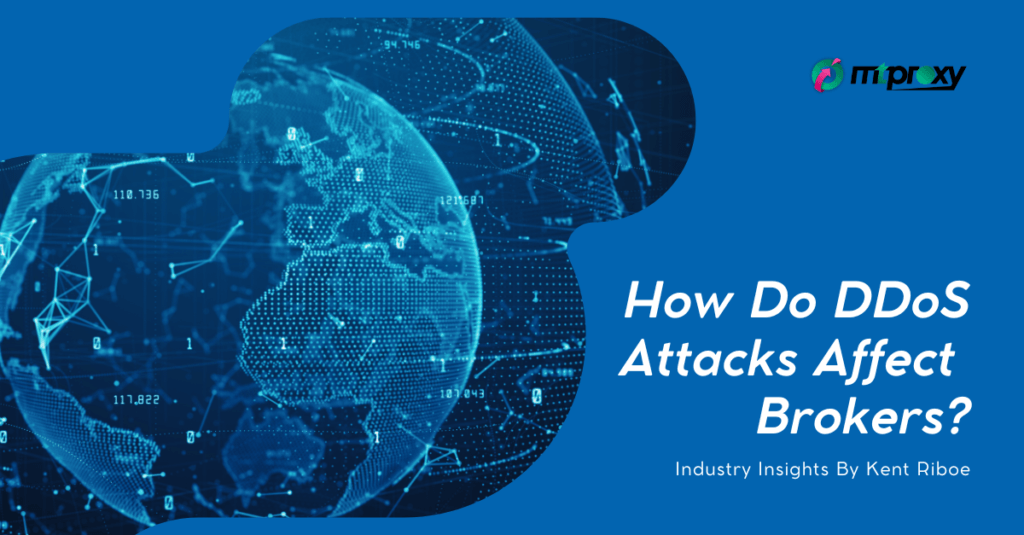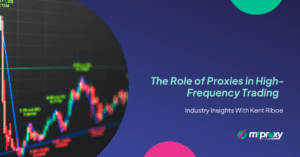A DDoS attack is when someone uses a technique called network flooding to crash your online services. Scary, right? And it happens more often than you think. In this article, we’re going to look closer at what a DDoS attack is and the damage they can do to a forex broker. Brace yourself.
What is a DDoS Attack?
As a forex broker, a distributed denial-of-service (DDoS) attack is one of the biggest potential threats to your company. In simple terms, a DDoS attack is when someone sends high volumes of traffic to your network in an attempt to slow down your operations, and ultimately, stop you from running services. In business terms, a DDoS attack is when someone damages your trading infrastructure, in an attempt to hurt your reputation, inconvenience your clients, and cost your businesses money.
How does a DDoS Attack work?
Your network resources – such as your trading servers – only have a limited capacity to manage data requests. This means that there is a maximum number of requests that can be processed at any one time. The network connections that support these resources also have a limited capacity to deal with traffic. This means that the connection paths can be easily overwhelmed as well. During a DDoS attack, the attacker will often send a very high number of data requests at once, from multiple locations. If the volume of requests exceeds your network capacity, and there is simply too much traffic, then your online services will either slow down or stop. And your clients will not be able to trade.
Why do DDoS attackers target forex brokers?
In most cases, the attacker’s goal is to bring your business to a complete standstill. This is known as a total ‘denial of service’. This is so that they can either damage your business, damage your reputation, or ask you for money. In other cases, the attacker’s main goal might be to damage your security infrastructure or steal your data. In these situations, the attackers use the DDoS as a distraction while they infiltrate your system. Whatever the motive, DDoS attacks can cause major problems for your forex brokerage.
How does a DDoS attack affect forex brokers?
As you’re probably starting to guess, a DDoS attack can have a devastating impact on your business. This is because, as a forex broker, you operate online and rely on being able to serve clients in real-time. And this, in turn, makes you a vulnerable target, and if your network security is lacking – a potential victim.
Here are some examples of exactly how an attack could affect your business.
1/ Short-Term Financial Costs
If a DDoS attack slows down your network, it will also slow down your ability to serve clients and process trades. If the attack stops your network completely, it will stop you from serving clients at all. As you can imagine, this would be very bad for your business. It would also be bad for your clients who may lose out financially, as they can’t open or close existing trades, and neither can your dealers.
The extent of the damage, in terms of financial costs, depends on your internal resources. For example, during a DDoS attack, your IT team will need to have the skills and experience to identify where the malicious traffic is coming from, which depending on the size of the attack, could be several hundred locations at once. Without this information, you may end up experiencing extensive downtime.
The extent of the damage, in terms of business impact, often depends on the quality of your trading infrastructure. For example, during an attack, your IT team will need to take quick action to reduce your server and network load and minimise disruption. If you operate on a relatively small network, and you rely heavily on your main trading servers, then your IT team may also need to add additional proxy servers, if they want to filter out the malicious traffic and resume service. Without this, you may end up experiencing even greater financial costs.
2/ Long-term Reputational Damage
If a DDoS attack brings down your MetaTrader servers, website or other services, people will find out about it, and it will cause serious reputational damage. We work in an industry where clients are very concerned about their online security – in terms of access to personal data, access to services, and access to money. During an attack, your clients will notice the impact it has on their trading, and you will start receiving complaints to your customer support. If they’re unhappy with how you handle their problems, then you may lose out on future business from your existing clients.
And then there are the online reviews. As you might know, we work in an industry where potential clients check for information on third party sites – particularly those of trusted regulators, publishers, and review sites. After an attack, some of your clients will talk about it online, and you will start to notice the effects of long-term reputational damage. And if people are worried about your network security measures, then you may find it much harder to get new clients. After all, one unhappy client could lead to 100 non-interested clients, and this will only add to your financial losses, as getting clients is an expensive endeavour.
How does MT Proxy help forex brokers to stop DDoS attacks?
Implementing new security measures and preventing DDoS attacks is much easier said than done. Not all forex brokers have the resources needed to manage this in-house.
That’s where MT Proxy comes in. We specialise in custom-built proxy network solutions. This means we are well-equipped to help you manage your network load, get better connection paths, and reduce your vulnerability to security threats. We are also well-equipped to help you deal with on-going and future DDoS attacks. Our solutions include automated DDoS threat detection and mitigation. And our proxy server networks provide you with added security, blocking threats before they reach your main trading servers. That means that, even if someone did try to attack your business, it would affect our proxy servers, and your services would continue running as normal. Your clients would continue to trade without even noticing. Imagine the relief!
Sign up for our free trial to find out more.



